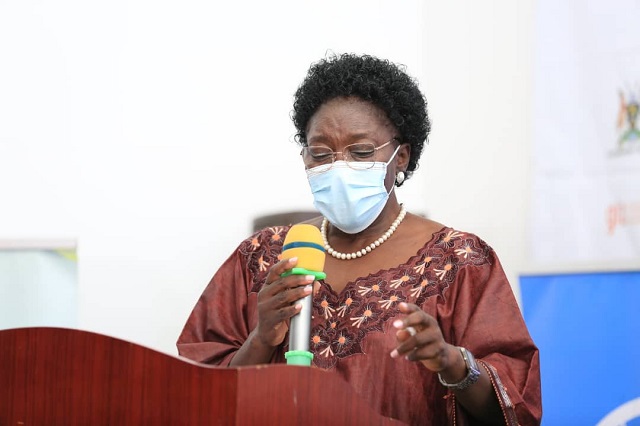
Kampala, Uganda | THE INDEPENDENT | The Climate Change Action East Africa (CCAEA) and the International University of East Africa (IUEA) have announced that they will be holding the Food Security Symposia and Expos annually in the capitals of the East African Community Partner States as the most imperative way of promoting awareness on climate change and food security issues.
The two entities held the inaugural three day event in Kampala recently and openly discussed the impact of climate change, food security issues and food systems with a focus on strategies to safeguard communities in Uganda, the East Africa region from hunger and the world as a whole.
The symposium ran under the theme, “Linking Climate Change To Food Security, Nutrition And Wellbeing,” and was unpacked by CCAEA and partners who presented papers covering; climate change perspectives in Uganda, effects of plastic bottles on climate change, post-harvest losses and its impact on food security, food security and architectures, the gender difference in adoption of agriculture-technology in Uganda and leveraging digital platforms to improve agricultural production.
Experts said, management of aflatoxins is one of the major problems in managing food security and that all natural foods in Uganda come from biodiversity. The best way to ensure good quality and natural healthy foods is to conserve biodiversity and the environment at large, they said.
Experts also said, women and youth play an important role in ensuring food security and that efforts to support them to own land should be actualized by key actors through legal regimes.
David Kabanda, Center for Food said, “Agricultural production in Uganda has evolved from the hand hoe to the use of oxen and later, the use of diesel-generated tractors. Oxen produce a lot of methane gasses while tractors produce a lot of carbon dioxide which is among the greenhouse gasses causing climate change.
Uganda indeed has very good policies and laws on the environment that would help combat the current rate of environmental degradation.”
Kabanda added, the enforcement of these policies and laws is chronically lacking.
“We, therefore, call for more synergy between the central and local governments in implementing food security policies and strategies to enforce these laws and policies at all levels and ensure that they are fully empowered,” he added.
The speakers highlighted the need to strengthen the Uganda National Bureau of Standards (UNBS) to ensure food standards are met at all times and forth with District and Local Governments to enforce Ordinances and Bylaws that address post-harvest handling and food securities.
“As firm believers in innovation and offering transformational experience for our students and stakeholders, we are delighted to host the first-ever Climate Change and Food Security symposium and expo and introduce to the participants our ESUS Platform; an online platform where farmers will access quality seeds, access climate updates, hire electric tractors and also track their produce,” Kabanda said.
Emeka Akaezuwa, Vice Chancellor, IUEA said, “The symposium has provided an arena for open discussion and knowledge sharing on the aspects of climate change, and food security among the wide range of participants from the Private sector, Academia, Development Partners, Institutions, Agricultural Sector Energy Sector and Climate Change actors and Environment promoters, Government and Civil Society Organizations.”
At the event, CCAEA also launched and encouraged the participants to uptake the One Acre Model that addresses livelihood and nutrition issues in the country.
Tom Okia Okurut, executive director, CCAEA said, “We are on a mission to create an inclusive hunger-free East Africa region by the year 2050 through appropriate mitigation measures on climate change in the areas of food and nutrition security in East Africa. Uganda and East Africa have been experiencing hunger due to acute food shortages.”
Rebecca Alitwala Kadaga, the 1st deputy prime minister and minister for East Africa Community Affairs pledged to interest the cabinet to see how the government can support the innovations and actors involved so that “we all contribute to a hungry-free Uganda.”
“I commend Climate Change Action East Africa on the one-acre outcome project model and IUEA on the research innovations; the electric tractor and electric motorcycle,” Kadaga said.
 The Independent Uganda: You get the Truth we Pay the Price
The Independent Uganda: You get the Truth we Pay the Price




